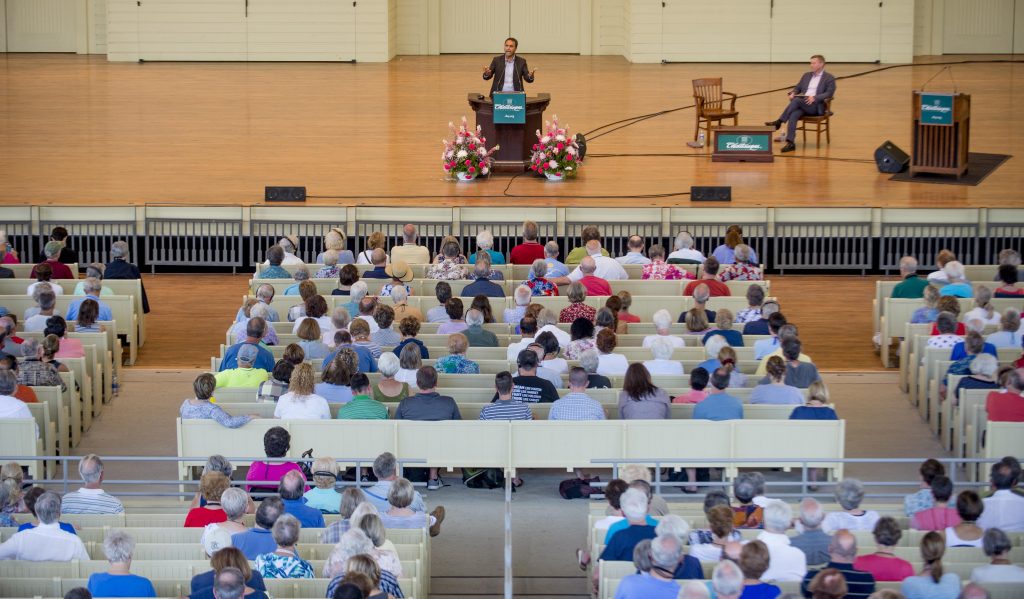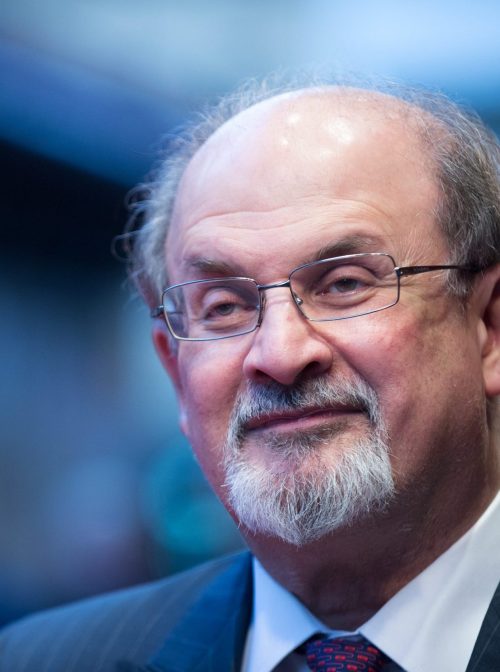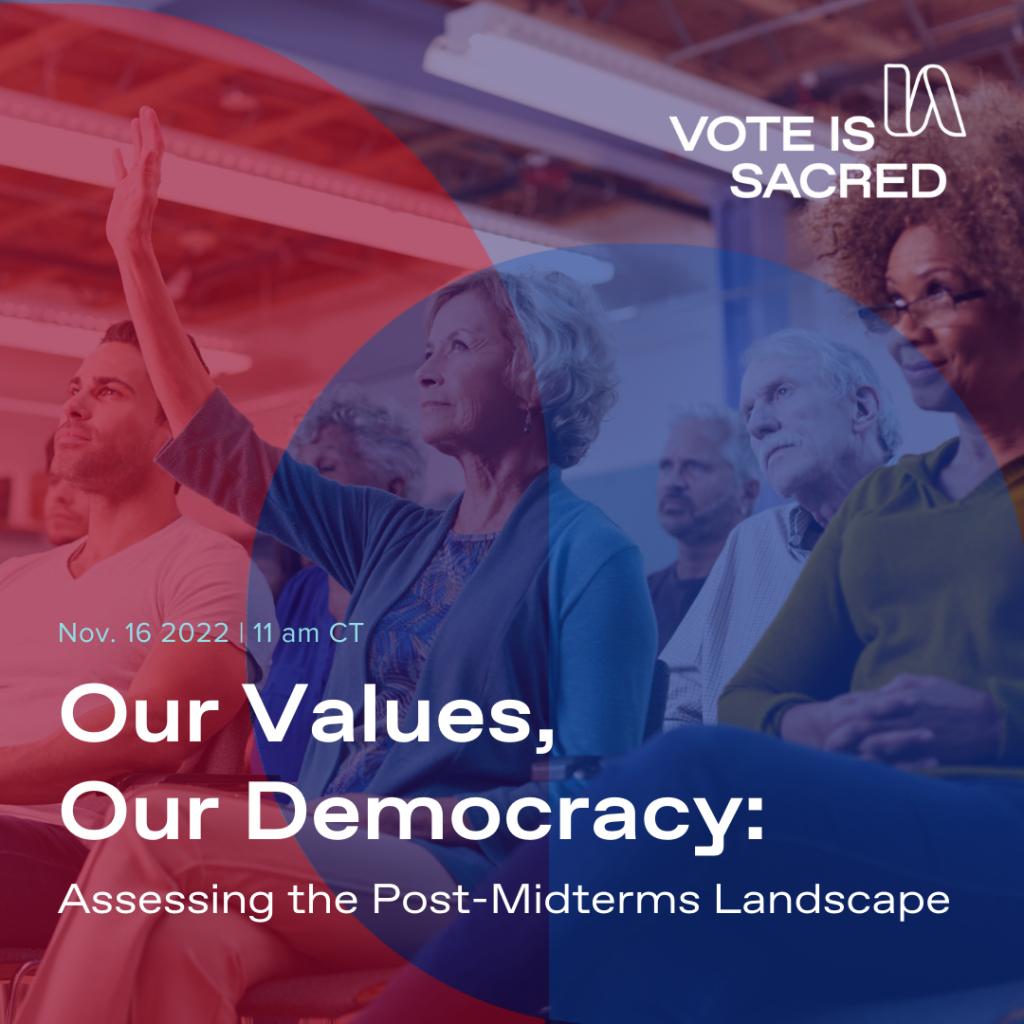Being in the presence of unimaginable violence changes a person in ways that are not easily communicated. But if we’re to push for an end to the hate that too often is the driver of violence in our world, we have to talk about it, and understand what we can become in its aftermath.
I had the honor of providing a keynote address in September for the Eradicate Hate Global Summit in Pittsburgh, the most comprehensive anti-hate conference in the world. Unfortunately, my invitation to do so was because of my connection to a high-profile hate-triggered tragedy. The Chautauqua Institution community witnessed an attacker rush the stage of our idyllic Amphitheater and brutally stab both award-winning author Salman Rushdie and his fellow presenter, Pittsburgh City of Asylum founder Henry Reese, forever changing both men, and the fabric of what we at the Institution refer to as our “sacred grounds.”
The event threatened the lives of individuals who occupied the same stage as past U.S. presidents, preachers, and renowned thinkers. It disturbed the sanctity of our setting, one that’s existed in western New York for 149 years without any major crime or violence. It exposed patrons to the infinite threat of hate, able to strike when and where we least expect it. And, in the aftermath of the event, that horrific scene can be conjured in our minds and hearts with the mere mention of a date on the calendar: August 12.
Everyone who was there that day or who loves Chautauqua can now instantly fill in myriad details from that simple month and day, and likely will be able to for the rest of their lives.
We share this experience with too many in this world. We shared the podium at the Eradicate Hate Summit with our neighbors in Buffalo, New York, who continue to struggle in the aftermath of the May 14 shooting at Tops Market, and with our Tree of Life Synagogue friends who endured hate-driven tragedy October 27, 2018, in Pittsburgh.

But the whole of these events can’t be reduced to mere dates and eventual annual remembrances. It’s the response to these events — driven by those who look at tragedy and engineer healing —that provides the full story. This is where a chapter of horror can transition to a tale of hope.
Within seconds of the assault on Chautauqua’s Amphitheater stage, staff and community members ran toward danger. They hurled themselves into the craziness of that moment, embodying the selfless and inspired culture that has been nurtured here since 1874. Our community gathered in prayer the same night, doing the most human thing we could do: support one another while being intimately present, engaging in the very act of reclaiming a place.
The following day, we gathered in big and small ways. We heeded the calls to continue to support each other, to talk about our grief, to shed tears. But amid this emotion, we declared that our historic stages would not be remembered by violence but endure as a platform for hope. The following week, in a twist of supreme irony, we opened up for a lecture series titled “New Profiles in Courage,” which concluded with Maria Ressa, the Nobel Peace Prize-winning journalist whose own writing and voice has repeatedly been suppressed by authoritarian governments and those who are threatened by the truth.
In every community that’s experienced unspeakable violence, there is an opportunity for healing, and a selection of choices that can create a less violent world in the aftermath of catastrophe.
A choice of hope over fear. A choice of action over paralysis. A choice to love, to seek understanding, and to intentionally build our empathy muscles against the forces that seek to divide us. At Chautauqua, we think there’s also a choice to redouble our commitment to a mission that was imagined nearly 150 years ago to preserve and bolster democracy and the democratic way of life through programs and platforms that explore the best in human values.
August 12 changed my life; it changed who I am forever. I don’t believe that day will ever leave my consciousness, and I suspect on each successive anniversary, I will stop to ask questions, take stock and, unfortunately, relive some painful moments. But I also believe it will serve as a reminder of the moment when the Chautauqua Institution community revealed its selfless character and redoubled its commitment as an idyllic bastion of education, love, and support for all.
If we work at it, I believe we have a shot at turning our horrific moment into a lasting memorial, one that honors those who ran toward danger to protect the very fabric of a sacred place and unveils a sacred truth for all afflicted communities: that violence only wins if we allow it to silence the best in our humanity.
Michael E. Hill, Ed.D., has served as the 18th President of Chautauqua Institution since 2017. His capstone project in his doctoral program at Vanderbilt’s Peabody College was titled, “Engaging Interfaith Diversity in Corporate America” and centered on Interfaith America as a pathway for multiple identities in the workforce.





